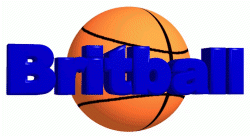 |
NBL Men NBL Women
|
|
|---|
Sections FIBA Supro League BBL Ireland Scotland
NBL Men
NBL WomenFront Page
More.. Profiles Archive Search Features The News Wire
Interactive News by Email Hoopchat Frequently Asked Questions Battle for Europe's basketball soul tips off
Mark Woods
On 16 October 2000, in the shadow of the Bernabeu in Madrid, the most eagerly awaited European basketball clash for many seasons tipped off, with more than just the hoops-loving fraternity taking a close interest in the eventual result. However rather than two teams going head to head, the contest is between rival European leagues, the establishment versus the rebellious upstart, with control of the sport's riches as the ultimate prize.
In one corner is the continent's official governing body FIBA, whose revamped Suproleague encompasses twenty clubs in 14 different countries. Providing opposition is the Euroleague, a newly-formed breakaway competition established by ULEB, an umbrella organisation of Europe's leading leagues and clubs which aims to wrest control of the game's most visible asset away from what it sees as a stagnant body.
Inevitably, it is the potential cash cow of television rights which has driven the fracture. It has been clear for some time that the leading Greek, Spanish and Italian clubs, whose budgets run into millions of pounds, desired to market their own fixtures directly to television rather than through FIBA's Swiss-based agents ISL.
Their faith has been justified, the sum of £20 million already promised to the new venture by Spanish-based communications giant Telefonica, a tidy bounty to be divided up which, even after start-up costs are met, will dwarf the £200,000 sum offered by FIBA to each club.
"We want to be one day in the future the NBA of Europe," states Euroleague spokesman Vladimir Stankovic. "Clubs wanted their own league. They were dissatisfied with FIBA and after long negotiations, they refused to accept what was offered to them and decided to set up this new venture.
"Clearly it isn't good for basketball to have two separate bodies because European basketball doesn't have enough major clubs for two elite competitions. Maybe in one or two years there will be a reconciliation. But right now, I think we have the best competition."
Yet FIBA only has itself to blame. Its Munich-based overlords have tried
in desperation to impose sanctions on both players and officials, ordering national associations to banish what it regards as defectors to an unauthorised competition. Their efforts to date have ended only in miserable failure, the legal protection offered by restraint of trade legislation enough to thwart any hopes it held of stalling the breakaway."It is clear that there is only one official competition which is that run by the governing body but it should not go on like that," affirmed FIBA representative Florian Wanninger. "If you look at the history of how this league developed, it was a ten year process. And in this process, the leagues have been involved, the federations have been involved and the clubs also. We were willing to give up significant financial control of the league but that was not accepted by ULEB.
"It is in everybody's interest that the situation changes next year and there is again only one European league. How that will happen, whether a compromise will be possible, I cannot tell but I hope that this happens by next season."
Our own London Towers are one of the 24 sides to sign up for Euroleague
duty, paired in a group which includes the mighty Barcelona and Frankfurt Skyliners, their initial opponents this Wednesday night.Having spurned the overtures of the Suproleague, the Crystal Palace based side have effectively put themselves at conflict with basketball's domestic authorities. But as the only BBL club which has consistently elected to test themselves against foreign opposition, the decision to pin their flag to ULEB's lucrative mast was an easy one.
"The better teams are in the Euroleague, it's that simple" explains Towers managing director Rick Taylor. "I think it's the biggest thing that's ever happened in British basketball. We cannot just play on this island and expect to get better.
"It will be very difficult though. Our goal is to make it into the next round. We have no illusions. Most teams we will play have one player who makes a much as our entire team. It's impossible to jump from Britain to be in the top four in Europe, both playing and financially. If we can make the next round, we'll be pleased with that."
The inaugural match between Real Madrid and Olympiakos could set a far-
reaching precedent. Europe's leading football clubs are keeping a close
watch on developments should the riches of the Champions League ever
fall short of their desired level. Basketball's woes could be the catalyst for a series of confrontations pitting traditions versus new media money.For at least this season though, confusion will reign. Two competitions, two champions. But probably only one winner, and success on and off the court will ultimately determine which participant is left standing and in charge of the pot of gold.
Copyright Britball. Download is subject to Britball's Terms of Service.